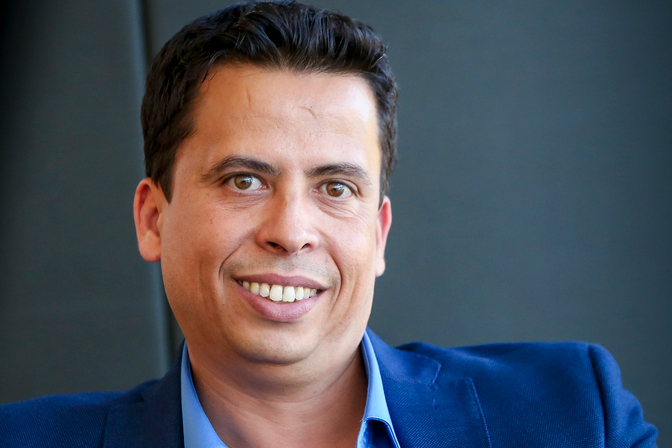An opinion on the Just Transition Fund by Greens/EFA MEPs Niklas Nienass (shadow rapporteur), Henrike Hahn (rapporteur for ECON opinion) and Mounir Satouri (rapporteur for EMPL opinion).

In the final trilogue negotiations on the Just Transition Fund, on Wednesday 9 December, co-legislators agreed to remove funding for natural gas projects from the final text entirely. This is a Greens/EFA success.
The Greens/EFA group is the only group in the EU Parliament that has consistently advocated for this, both in the negotiations within the European Parliament and in the subsequent negotiations with the EU Commission and Council.
Fossil fuels will no longer receive financial support from the Just transition fund (JTF) and no exemptions will be allowed. Within the three-way negotiations, the European Parliament finally agreed to withdraw its amendments – the result of intense lobbying from the gas industry – allowing for exceptions. Agreement was also reached that the transport sector will be free from exemptions, thus aligning the JTF conclusion with the European Regional Development Fund/Cohesion Fund trilogue outcome earlier this week.
This is an important success. The Just Transition Fund is the first instrument of the European Green Deal. Endowed with 17.5 billion euros, the fund must work to ensure that the transition to a climate-neutral economy is socially just. Above all, the money is there to provide European coal regions with a new future.
Investment in gas technology was an attempt to stall progress for citizens in coal regions. We have worked hard to prevent this. We are determined to make sure that it will be a just, fair, and inclusive transition and that no one is left behind. We must consider ecology and social justice together.
In this respect, the JTF is an important first step. Structural strengthening in coal regions now requires investments in start-ups, small and medium-sized enterprises, social projects and cultural facilities. Through the JTF, the EU will support carbon-intensive regions in diversifying their economies and creating new sustainable and decent jobs.

Key points within the political agreement on the JTF
1. Climate conditionality
A conditionality on commitment to the EU’s climate neutrality objectives was tentatively agreed. It foresees that only 50% of resources allocated to the Member State concerned can be used for programming and implementation as long as commitment to implement a climate-neutral EU by 2050 in line with the objectives of the Paris Agreement, is not given. Negotiators reached agreement on the text for this conditionality. However, the Council can only reconfirm once the EU budget (MFF) has been adopted. The text is therefore still bracketed.
2. Green rewarding mechanism
The Council will be able to agree on Green Rewarding Mechanism, possibly, at mid-term. The Green Rewarding Mechanism will cover resources additional to those already allocated in the regulation and should provide an incentive to Member States to perform better on carbon dioxide emission reductions.
3. Special allocations for outermost regions and islands
The agreement provides that Member States should take particular account of the situation of their outermost regions and islands and allocate specific amounts to these regions in the context of their territorial just transition plans.
4. Biodiversity and the ‘Do No Significant Harm’ principle
As the JTF falls under the Common Provisions Regulation (CPR), funding must be in line with the Biodiversity and “Do no significant harm” principles that we have successfully negotiated into the CPR last week. Thus, projects funded by the JTF must not harm the environment as defined in the important EU-taxonomy.
5. Support for social facilities
The Greens/EFA have successfully broadened the scope of funding possibilities for social projects and infrastructures. With the JTF, the EU vows to give people reasons to stay in territories in transition. Consolidating social facilities, such as those for the provision of childcare, elderly care, sports or cultural facilities, the fund will help regions become attractive and maintain well-being for everyone.
6. Support for job seekers
Supporting not only working people in transition but also job seekers is of utmost importance for the effectiveness of the JTF. The transition is the promise of a better and inclusive future. Everyone must benefit from it and our support must also help the most vulnerable among us, whether they are young people without access to training or the job market, persons with disabilities, isolated women, for example.
7. Review clause
This includes a reference to the important taxonomy regulation and subsequent updates which need to be reflected in the JTF spending and objectives. The review clause is an important horizontal position of this Parliament. It helps to ensure that the programmes remain fit-for-purpose and in line with EU policy needs, as indicated in the recommendations of the President of the Parliament for the negotiations on the MFF sectoral programmes.
8. State aid
The JTF will allow support to companies in difficulties under the temporary framework, due to exceptional circumstances, for investments reducing energy costs in the context of the energy transition process.


Mounir SATOURI in the EP in Strasbourg/ © European Union 2019 – Source : EP 
Niklas NIENASS in the EP in Strasbourg/ © European Union 2019 – Source : EP 
MEP Henrike Hahn/ © European Union 2020 – Source : EP